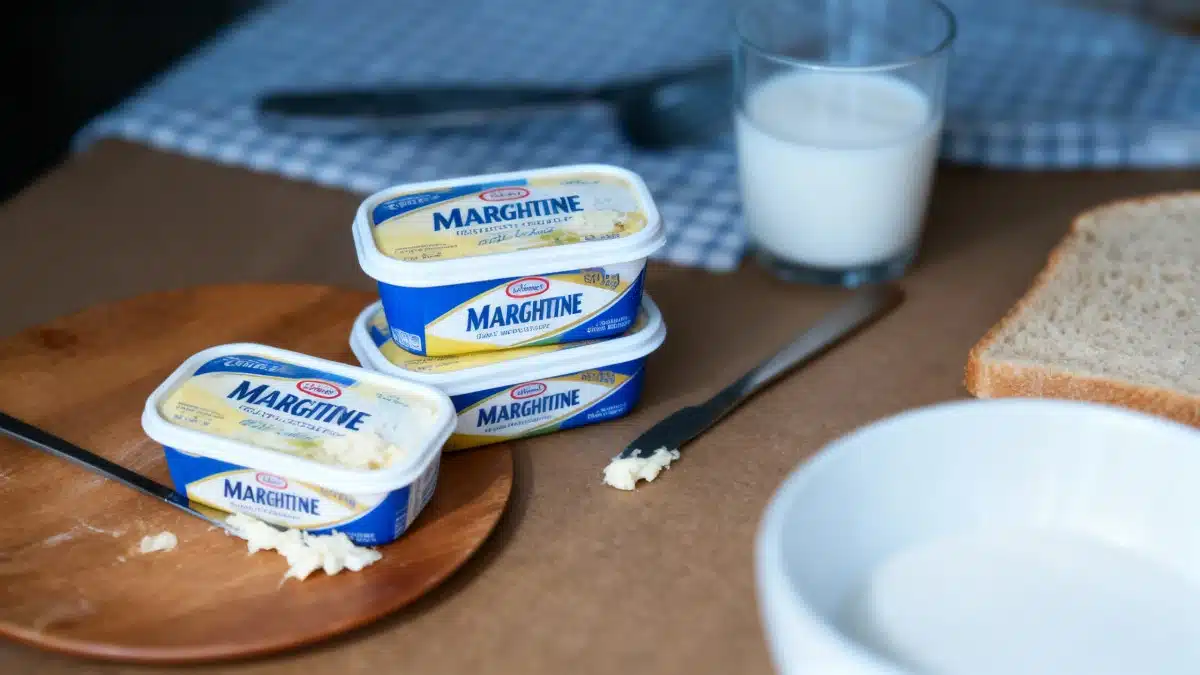Who hasn’t, at least once, been tempted by margarine? Presented as a lighter, healthier alternative to butter, it gleams invitingly on the supermarket shelf, promising benefits for both waistline and heart. But, just because it looks healthy in that golden tub, should we trust what’s inside? Let’s dig deeper and uncover the two margarines experts—and especially the respected voice of 60 Millions de consommateurs—strongly suggest you leave off your shopping list for the sake of your well-being.
Margarine: Healthy Halo, Hidden Pitfalls
- Often marketed as a better option than butter, margarine typically boasts lower fat content.
- It’s commonly enriched with omega-3 fatty acids, known allies of a happy, healthy heart.
- Made by blending water and vegetable oils, margarine contains fats that can genuinely help reduce bad cholesterol.
Sounds like the Holy Grail for calorie- and health-conscious cooks, right? Not so fast. 60 Millions de consommateurs has peered behind the gloss of many margarines and discovered that they’re not all created equal. Some masks nutrition secrets that are better left uncovered than eaten.
When Margarine Turns Against You: The First Offender
Let’s look at a margarine that, on first glance, looks like a smart pick. It sports a rare Nutri-Score C for a spreadable fat and doesn’t contain palm oil. Health-conscious shoppers rejoice! Yet, hold onto your hats—the same 60 Millions report points out a major issue: this margarine is loaded with phytosterols. Sure, these compounds are lauded for their ability to lower bad cholesterol, but it’s not all sunshine and rainbows.
In excess, phytosterols can:
- Overload the body’s waste elimination system
- Stagnate in the body
- Ultimately raise the risk of cardiovascular diseases
No matter how shiny the packaging or how high the price tag, this margarine is definitely not recommended for regular consumption. Sometimes, you really can have too much of a good thing.
The Budget Trap: Second Margarine to Sidestep
Money doesn’t buy happiness—or health, when it comes to the next spread on the list. This more affordable margarine proudly touts itself as a valuable source of omega-3 and vitamin E. However, a look under the hood reveals that its main ingredient is 31% sunflower oil, with palm fat tagging along right behind.
- Palm fat brings along not only environmental concerns but is loaded with saturated fatty acids—the kind you want to see less of if you’re aiming for a healthy diet.
- The presence of these fats makes this brand far from ideal for those keeping an eye on their health goals.
So while the promise of a bargain and « added vitamins » might catch your attention, the ingredients list should send you packing. Not all value buys are real wins—especially for your arteries.
Choose Wisely: Not All Margarines Are Created Equal
Here’s the crucial takeaway: margarine’s reputation as a health food can be as artificial as the neon lighting at the supermarket. Some references, highlighted by 60 Millions de consommateurs like Proactiv and Vita d’or Tournesol, made the hall of shame this year. By avoiding these, you’re giving yourself a real boost toward a more balanced and health-respecting diet.
- Aim for spreads low in saturated fat and skip excessive plant sterols.
- Check those ingredient lists for palm fat or high proportions of controversial additives.
- Don’t just fall for the healthy « halo »—read, compare, and question what’s inside each tub.
Remember, choosing your ingredients isn’t just about labels or marketing promises. It’s about reclaiming the pleasure of cooking—healthy, simple, and full of flavor. If you have your own margarine tips or kitchen tales, don’t hesitate to share. After all, today’s shopping choices are tomorrow’s family recipes.

John is a curious mind who loves to write about diverse topics. Passionate about sharing his thoughts and perspectives, he enjoys sparking conversations and encouraging discovery. For him, every subject is an invitation to discuss and learn.






